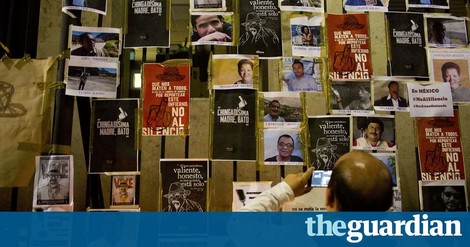Your podcast discovery platform
Curious minds select the most fascinating podcasts from around the world. Discover hand-piqd audio recommendations on your favorite topics.

piqer for: Globalization and politics Global finds
I am an Australian freelance journalist focussing on conflicts, politics, and warzones around the world. I have been working as a journalist for over 5 years, having reported from Australia, Germany, China, Egypt, Palestine, and Ukraine. I am especially interested in the way that new technologies are being used in conflict zones in unexpected and often disturbing ways. During my time working as a journalist, I also co-founded open-source war reporting site Conflict News.
'You Can Get Killed': Journalists Live In Fear As States Crack Down
When someone starts a career in journalism in the developed world, most would not think of it as a particularly dangerous choice. The truth however in the majority of the world's countries is quite different.
We now live in an age where even the most pious proponent of free speech – the United States – is led by a man who regularly questions press freedom. A time when governments the world over possess the tools to monitor the operations of journalists with the same level of scrutiny that they used to reserve for spies or terrorists.
Last year alone, 259 journalists were jailed and 79 were killed, as press freedom reached its lowest levels since the year 2000. This creates a climate in which many journalists who started in the profession for the noblest of reasons, are left to decide whether they want to be a good journalist, or if they want to be a living one.
This special report by the Guardian is one of several pieces they have released over the last few days, examining this alarming decline in press freedom and journalists' safety. It highlights that it is not just in obviously authoritarian regimes that journalists are threatened, jailed or killed, but also in a number of countries which are nominally democracies. Featuring correspondents from Brazil, Russia, India, Turkey and Thailand, the article looks at the full array of tools governments are now using to stifle dissent and critical journalism, and the way journalists are suffering due to their use.
As a journalist who often works in similar countries, and who can't return to several of them due to the fear of imprisonment, I believe this is an incredibly important topic. If the role of a journalist is to defend the public and democracy, who is willing or able to defend us?

Source: Michael Safi, Jonathan Watts, Oliver Holmes, Kareem Shaheen and Shaun Walker Image: Rebecca Blackwell/AP theguardian.com